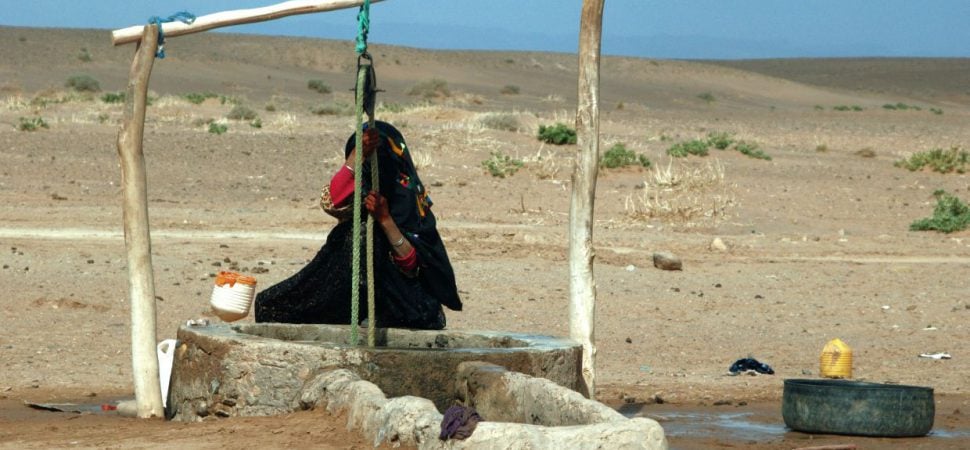
Inefficient water use and water losses
There are substantial water losses, mostly leakages, in the drinking water and irrigation transport and distribution networks. In the irrigation network, losses amounted to 4 BCM in 2010, according to the Ministry of Equipment, Transport, Logistics and Water. Drinking water losses were about 400 MCM (35%), with a performance rate of less than 70%. Some 415 MCM of wastewater is discharged into the natural environment.
Public awareness and education campaigns
Morocco has taken steps to improve water management, stressing the need to involve everyone with a role or interest in water management in the planning and decision‐making process. These include the establishment of water user associations, the introduction of education and training initiatives and awareness-raising campaigns aimed at the general public.[1],[2] However, the efforts are not sufficient. More needs to be done to raise awareness among water users, polluters and civil society about water conservation. Examples include the lack of awareness in the agricultural sector, the limited impact of pricing policies and institutional weaknesses that inhibit effective groundwater management. There is an urgent need to promote public awareness to minimize drought damage, reduce losses, increase water use efficiency in irrigation schemes and improve wastewater management.[3]
Climate change mitigation and adaptation
Between 2005-2010, Morocco devoted some 64% of its national climate finance expenditure to adaptation, equivalent to 9% of total capital expenditure. The country is committed to the development of its National Adaptation Plan to Climate Change, aimed at better coordinating the plan’s actions and maximizing their benefits. To fulfil the sustainability goals and capacity gains in the water sector, the following measures are recommended:
- Improve planning and foster integrated management of water resources by strengthening the synergy between the different national strategies and plans related to water and the institutionalization and operationalization of river basin councils for large-scale watersheds.
- Strengthen the conservation of water resources mainly through widespread and quick implementation of so-called ‘aquifer contracts’ and combat illegal withdrawal of water resources. Another means to conserve water is encouraging the use of non-conventional water resources throughout the country.
- Increase protection against the pollution of water resources through the following measures:(i) accelerate the implementation of the National Sanitation Programme;(ii) develop and implement a National Plan for Rural Sanitation;iii) accelerate the implementation of standards for industrial waste;(iv) accelerate the application of the polluter-pays principle;(v) establish the pollution protection perimeters around catchments;
(vi) improve coordination between the water police and other protection bodies at each river basin.
- Strengthen education, research and awareness around water and climate change through the establishment of a National Centre for Research, Innovation and Expertise, in order to optimize available human and material resources and to build public awareness among different user groups about the rarity and scarcity of water resources and water saving.[4]
[1] World Bank, 2018. Climate Variability, Drought and Drought Management in Morocco’s Agricultural Sector.
[2] World Bank, 2018. Kingdom of Morocco Systematic Country Diagnostic: Governing Towards Efficiency, Equity, Education and Endurance.
[3] World Bank, 2018. Climate Variability, Drought and Drought Management in Morocco’s Agricultural Sector.
[4] Houzir M, Mokass M and Schalatek L, 2016. Climate Governance and the Role of Climate Finance in Morocco.
